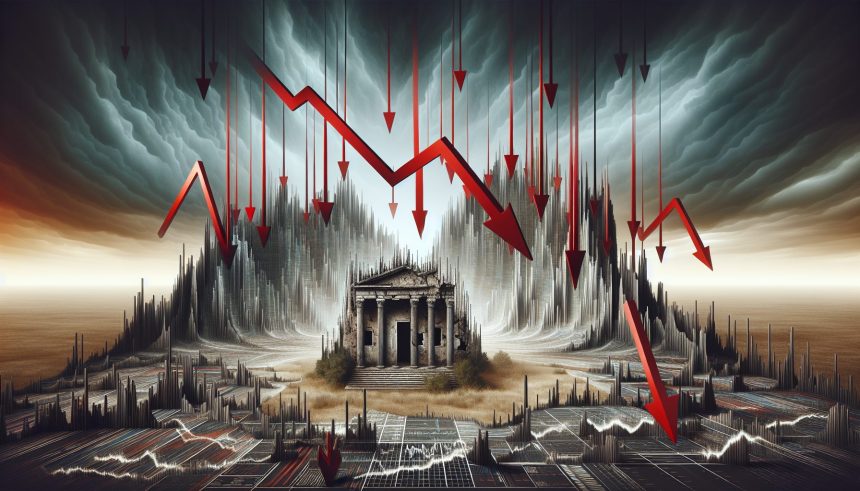The U.S. stock market took a sharp downturn on Wednesday, with the Dow Jones Industrial Average sinking 817 points, or 1.91%. The S&P 500 and Nasdaq Composite also suffered significant losses, dropping 1.61% and 1.41% respectively. This marked the worst single-day performance for all three major indexes in a month.
The sell-off was triggered by weak demand at a Treasury auction for 20-year bonds. The auction ended with a yield above 5%, much higher than the 4.83% yield at the previous auction in February. This tepid demand highlighted growing investor concerns about the country’s fiscal outlook and the potential impacts of recent tax legislation.
Chip Hughey, managing director for fixed income at Truist Advisory Services, noted that while Moody’s recent downgrade of the U.S.’s sovereign credit rating was unsurprising, it brings attention to the nation’s growing deficit and debt burden. Higher bond yields can make stocks less attractive to investors, putting pressure on the stock market.
Stocks fall amid tax concerns
Throughout Wednesday morning, stocks continued to trade lower as budget deliberations in Washington added to the uncertainty surrounding American assets. The ratio of federal debt to gross domestic product (GDP) has risen significantly in recent years, reaching 123% in 2024 compared to 104% in 2017. Alan Auerbach, a professor of economics at UC Berkeley, emphasized the unprecedented nature of these figures outside of recent recessionary periods.
Investor anxiety was further reflected in the surge of the CBOE Volatility Index, known as Wall Street’s fear gauge, which jumped by more than 15%. The U.S. dollar index also slid by 0.5% against six major foreign currencies. In the tech sector, major companies like Nvidia, Apple, and Tesla saw their share prices fall, contributing to the overall market decline.
Analysts suggest that various macroeconomic factors, such as inflation concerns and global trade tensions, may have played a role in the market’s instability. As investors navigate the implications of higher bond yields and fiscal uncertainty, the market remains volatile. Experts advise caution and vigilance in the face of these ongoing challenges.







